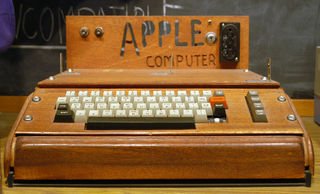I'm certainly confident that there is a “one more thing” that is inevitably going to dramatically change society as we know it.
And this will happen in less than 10 years from now.
This change is going to be even more significant than the changes triggered by events such as the discovery of fire, the invention of the printed book, the penicillin, the steam engine, the TCP/IP Protocol or the iPod.
Reality vs. Perception
Have you never questioned yourself what reality is? Don`t worry, this is a fundamental question in the history of human thinking that has kept busy the minds of many great scientists, philosophers and artists since the beginning of time: from the Allegory of the Cave by Plato, the "Dream Argument" by Descartes, to The Matrix by the The Wachowski Brothers.

You are not the only one trying to find your own definition.
On my side, after a relatively short time of careful consideration, I came with my own definition::
In other words: real is what we can see, hear, touch or smell.
When we refer to reality we actually mean the representation of physical objects in our brains and not the physical objects themselves. That is why we need perception to process that kind of information.
information gathered by our senses.
In other words: Perception is the tool used to define reality.
Perception and reality are, in fact, two sides of the same coin. You can not conceive reality without perceiving it. You can not conceive reality without processing the information given by your sensorial organs.
The oakworm
I strongly believe, that there is only one reality, but also that this reality is completely different (perceived) depending on the individual.
Try to imagine for a second what could reality mean for a common oakworm, peacefully leaving on the side of an oak’s leaf.

His interface to the world is basically reduced to a couple of thousands of nerve endings, which cover his entire body so that he can feel vibrations and different textures in his close surroundings. In this way, he is able to know if he is on the right dinning spot based on the unique surface characteristics of the leaf. He also have a few tiny organs called chemoreceptors that help him perceive chemical sensations: his mouth.
We, human beings, share the same physical existence than the Oakworms, but due to our inherent anatomical differences and the more advanced perception mechanisms , humans are able to create a more accurate representation of the world.
The reality as perceived by the human beeings is a much more accurate representation than the the reality as perceived by the oakworms.
Imagine, we could attach a device to the worm’s body that would translate electromagnetic waves into signals able to be captured by. lets say, his chemoreceptors. He would be able to literally taste the light and therefore to see.
This kind of technically supported body enhancement, will give this worm a kind of - even evolutionary - advantage against other worms and even against other species. It would also allow them to learn different kind of environmental changes (perceivable only by different light frequencies) that in certain circumstances will let him survive life threatening situations.
We could go keep enhacing our fictional device and improve the worm’s reality in a way that it could be even as accurate as the reality as perceived by the human beeing or even improve it.
Computers
Now, forget the worms.
Computers are pretty dumb machines if we compare them to the human brain. They are very bad at almost everything: they can not sing a song, write a poem, make love or climb a mountain. But computers are very good at one thing: They are very good are maths: and they are particularly good at one specific branch of mathematics called arithmetic which deals with performing operations on numbers such as sum or multiplication. They are very accurate and more importantly: they are fast.

This fascinating number crunching power together with some other basic mathematical tips and tricks are enough to create very accurate representations of our reality.
Wise people call that simulations.
We can simulate the weather, also the fluid flowing through a hydraulic pipe, we can simulate the vibrations of a turbine, the turbulence behind an aircraft wing. You can also simulate sounds, music and voices. You can also pretty good create three dimensional representations of your car, your house, your pet or your just hero!
End of Part 1.
Yours sincerely
Pablo Garcia
(**) If you want me to keep writing the second part (which is still a draft in my mind) please comment!.
